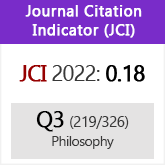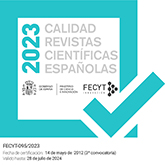Autonomy in Bioethics: criticisms and re-definitions
DOI:
https://doi.org/10.3989/isegoria.2022.67.12Keywords:
Autonomy, Bioethics, Death’s taboo, FeminismAbstract
This article problematizes the current use in bioethics of the concept of autonomy in light of various contemporary criticisms and the taboo on death that prevails today in Western societies. After describing the historical development of this notion, I revise some of these objections, particularly those coming from the fields of medical ethics and feminism, and advance a new criticism on the basis of the mentioned taboo. I put forward a conception of autonomy more philosophically robust, which involves, first, the individuals’ capacity to establish ends for themselves and deliberate on the most effective and moral means to achieve them, and, second, the role that particular ties of interdependence as well as society as a whole play in this process. I suggest, then, that contemporary bioethics would benefit from understanding individual autonomy as a social goal, that is, as an end to be socially promoted.
Downloads
References
Ariès, Philipe (2000). Historia de la muerte en Occidente: desde la Edad Media hasta nuestros días. Barcelona: El Acantilado.
Bauman, Zygmunt (1992). Mortality, Immortality and Other Life Strategies. Cambridge: Polity Press & Blackwell Publishers.
Beauchamp, Tom (2006). The Right to Die as the Triumph of Autonomy. Journal of Medicine and Philosophy, 31 (6), 643-654. https://doi.org/10.1080/03605310601096619 PMid:17162732
Bluebond-Langner, Myra (1978). The Private Worlds of Dying Children. Princeton-New Jersey: Princeton University Press. https://doi.org/10.1515/9780691213088
Brock, Dan (1992). Euthanasia. The Yale Journal of Biology and Medicine 65, 121-129.
Donchin, Anne (2000). Autonomy, Interdependence, and Assisted Suicide: Respecting Boundaries, Crossing Lines. Bioethics 14 (3), 187-204. https://doi.org/10.1111/1467-8519.00190 PMid:11658132
Downie, Jocelyn y Sherwin, Susan (2013). A Feminist Exploration of Issues around Assisted Death. Saint Louis University Public Law Review 15 (2), 303-330.
Dworkin, Ronald (1993). Life's Dominion: An Argument about Abortion, Euthanasia, and Individual Freedom. New York: Vintage Books.
Elias, Norbert (1987). La Soledad de los moribundos. México: Fondo de Cultura Económica.
Emerick, Elizabeth (2000). Death and the Corpse: An Analysis of the Treatment of Death and Dead Bodies in Contemporary American Society. Anthropology of Consciousness 11 (1-2), 34-48. https://doi.org/10.1525/ac.2000.11.1-2.34
Geest, Sjaak van der y Satalkar, Priya (2019). Autonomy and Dying: Notes about Decision Making and 'Completed Life' Euthanasia in the Netherlands. Death Studies. https://doi.org/10.1080/07481187.2019.1671543 PMid:31599701
Glaser, Barney G. y Strauss, Anselm L. (1964). Awareness Contexts and Social Interaction. American Sociological Review, 29 (5): 669-679. https://doi.org/10.2307/2091417
Jarworska, Agniezska (1999). Repecting the Margins of Agency. Alzheimer's Patients and the Capacity to Value. Philosophy and Public Affairs, 28 (2), 105-138. https://doi.org/10.1111/j.1088-4963.1999.00105.x PMid:11657616
Jecker, Nancy (1994). Physician-Assisted Death in the Netherlands and the United States: Ethical and Cultural Aspects of Health Policy Development. Journal of the American Geriatric Society 42, 672-678. https://doi.org/10.1111/j.1532-5415.1994.tb06869.x PMid:8201155
Kant, Immanuel (2000). Crítica de la Razón Práctica (CRPr) Trad. Roberto Rodríguez Aramayo. Madrid: Alianza.
Kant, Immanuel (2002). Fundamentación a la Metafísica de las Costumbres (FMC) Trad. Roberto Rodríguez Aramayo. Madrid: Alianza.
Kant, Immanuel (2004). Contestación a la pregunta: ¿Qué es la Ilustración? (QI). Trad. Roberto Rodríguez Aramayo. Madrid: Alianza.
Langton, Rae (1992). Duty and Desolation. Philosophy 67 (262): 481-505 https://doi.org/10.1017/S0031819100040675
Miles, Steven y August, Allison (1990). Courts, Gender and 'The Right to Die'. Law, Medicine & Health Care 18 (1-2), 85-95. https://doi.org/10.1111/j.1748-720X.1990.tb01135.x
O'Neill, Onora (2004). Autonomy and Trust in Bioethics. Cambridge: Cambridge University Press.
Pelluchon, Corine (2013). La autonomía quebrada. Bogotá: Universidad del Bosque.
Taylor, Cory (2016). Dying. A Memoir. Melbourne: Canongate Books.
Vovelle, Michel (1974). Mourir Autrefois. Attitudes collectives devant la mort aux XVIIe et XVIIIe siècles. Paris: Gallimard-Julliard.
Warren, Virginia (2000). From Autonomy to Empowerment: Health Care Ethics from a Feminist Perspective. En: Bioethics, Justice, and Health Care. Ed. Teays, W. and Purdy, L. M., 49-53. Wadsworth Publishing.
Wolf, Susan (1996). Gender, Feminism, and Death: Physician-Assisted Suicide and Euthanasia. En: Feminism and Bioethics, Wolf, S. (ed.), 282-317. New York: Oxford University Press.
Timmermans, Stefan (1994). Dying of Awareness: the Theory of Awareness Contexts Revisited. Sociology of Health & Illness 16 (3): 322-339. https://doi.org/10.1111/1467-9566.ep11348751
Published
How to Cite
Issue
Section
License
Copyright (c) 2022 Consejo Superior de Investigaciones Científicas (CSIC)

This work is licensed under a Creative Commons Attribution 4.0 International License.
© CSIC. Manuscripts published in both the printed and online versions of this Journal are the property of Consejo Superior de Investigaciones Científicas, and quoting this source is a requirement for any partial or full reproduction.All contents of this electronic edition, except where otherwise noted, are distributed under a “Creative Commons Attribution 4.0 International” (CC BY 4.0) License. You may read here the basic information and the legal text of the license. The indication of the CC BY 4.0 License must be expressly stated in this way when necessary.
Self-archiving in repositories, personal webpages or similar, of any version other than the published by the Editor, is not allowed.














